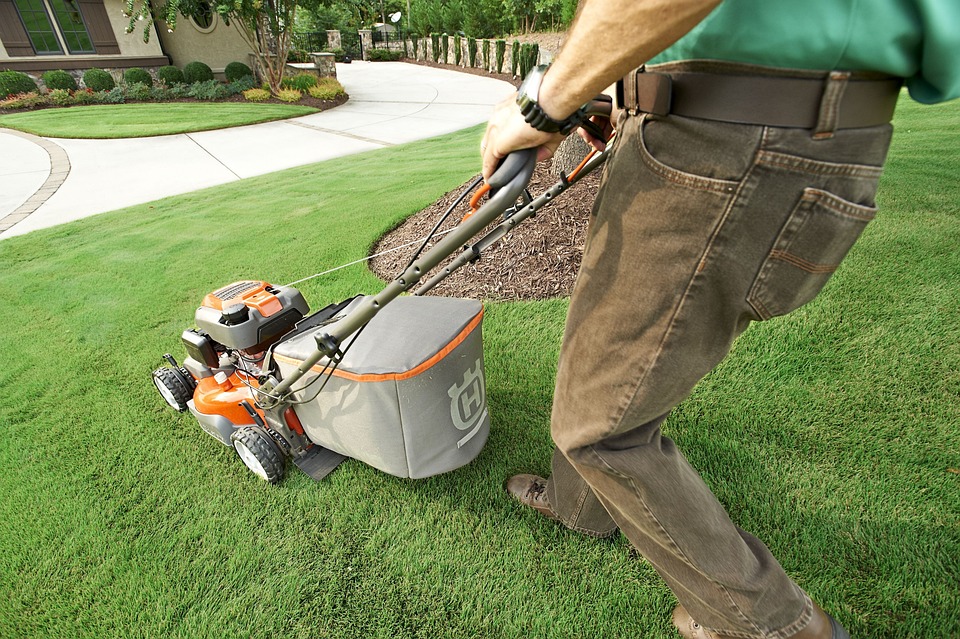(Psst: The FTC wants me to remind you that this website contains affiliate links. That means if you make a purchase from a link you click on, I might receive a small commission. This does not increase the price you’ll pay for that item nor does it decrease the awesomeness of the item. ~ Daisy)
By the author of The Faithful Prepper and The Prepper’s Guide to Post-Disaster Communications.
Nobody likes to pay more than what they need to on their home. But, entropy exists, and things break down. Want to know what are the simple things that you can do though to keep your household running on a budget? Here are a few home repair tips that will save you money in the long haul.
Need a lock rekeyed?
If you call a locksmith out to your house, you’re not only going to get hit with a service trip fee (which will be at least $40), but you’re going to get hit with labor fees and taxes as well. You can save some money here, though, if you know what you’re doing.

There are really two options here: use a Kwikset Smartkey system or take all the locks off your house to a locksmith. Kwikset Smartkey locks allow the owner of the home to change their lock to accept any key they want anytime they want. They’re pick proof too. While I’m not a huge fan of Kwikset, this is an option.
The second option is to take all the locks off your house, take them to the lock shop, and have him rekey them on site. It normally takes five minutes or so per lock, and this can save you a heft service trip fee if there’s no locksmith anywhere within your local area.
Keeping your lawnmower running
Engine repair on a lawnmower is expensive. Replacing your lawnmower is even worse. If you’re going to put major money into a lawnmower, then you need to make sure that you are protecting your investment.

One problem is that regular gasoline has ethanol in it. Ethanol doesn’t like engines. It shortens the lifespan of a number of important engine components. To halt this, add an ethanol treatment to your lawnmower’s gasoline. Personally, I use a version of Sta-Bil that treats for ethanol.
This helps to protect your engine and keeps it running longer. You can literally save yourself hundreds of dollars by doing this every time you refill your gasoline in your lawnmower.
HVAC repairs are a nightmare.
A destroyed HVAC system completely ruined my vacation one year. Getting hit with a $6000 bill a few days before you’re supposed to head out of town makes it so you can no longer afford to go out of town. Here are a few things you can do to extend the life of your HVAC system.
For starters, change your air filter on a monthly basis. The longer that filter sits in the air return, the more dust it’s going to accumulate. The more dust in the filter, the harder your HVAC unit has to work. So, change that air filter on a monthly basis.
Secondly, I would recommend getting an HVAC technician whom you trust to head to your place on a yearly basis to do an HVAC checkup. They’ll make sure everything is in tune and working properly and can keep any little problems from becoming major problems.
Put new weather stripping around your exterior doors.
If you’ve lived in your house for a long time or just moved into a house that is rather old, odds are that the weatherstripping around your doors is in need of repair. These are the thin, squishy strips that run along the entire door frame and provide a seal between inside your house and outside your house.
If you end up in a position where your weatherstripping is bad, not only can you have problems with bugs getting into your house, but you’re going to be wasting a lot of money on your heating and air conditioning as well.
Cold air will flow right through that crack between your door and door frame in the wintertime, causing your heating bill to be much higher than it would be otherwise. Thankfully, these are pretty cheap to pick up at your local hardware store. It’ll probably cost you around $20/door to change out the weather stripping, but you’ll end up with a much better-insulated house from the outside world as a result.
Insulate your hot water heater.
The savings on doing this aren’t huge (likely around $100/year), but they are savings. Your hot water heater has to pull in a lot of electricity to heat that water up. A lot of this heat can be lost to the outside environment, causing your hot water heater to essentially have to work harder to heat up the water it’s already worked to get hot.
But, you can buy hot water heater “blankets” at your local hardware store that will insulate this essential part of your home. This insulative wrap will help your hot water heater to retain it’s warmth, making it so that it doesn’t have to use more electricity than is necessary. It’s a fairly easy and simple fix that can give you an extra $1000 over the course of ten years, so it may be something you’ll want to consider.
There are a whole host of DIY at-home tips you can take to save money.
And this article is barely scratching the surface of what you can do. Your local hardware store can actually save you a significant amount of money on your monthly household expenses if you know where to look. But what are your thoughts? Are there other tips you would recommend to others to save money? Do you regularly do any of the above? Let us know your thoughts in the comments below.
About Aden
Aden Tate is a regular contributor to TheOrganicPrepper.com and TheFrugalite.com. Aden runs a micro-farm where he raises dairy goats, a pig, honeybees, meat chickens, laying chickens, tomatoes, mushrooms, and greens. Aden has three published books, The Faithful Prepper, The Prepper’s Guide to Post-Disaster Communications, and Zombie Choices. You can find his podcast The Last American on Preppers’ Broadcasting Network.












7 thoughts on “Home Repair Tips That Will Save You Money in the Long Haul”
Interesting, helpful article.
We discovered yesterday that we need to re-do the weather stripping on at least one door.
There was a gusty thunderstorm, pushing sheets of water directly at that door – and a puddle formed on the inside of the door! That had NEVER happened before in the 5 years we’ve lived here.
We’re going to make sure that it doesn’t happen again.
If your front and back yards are not too outrageously large you can spare yourself most of that gasoline-powered lawn mower maintenance and much of its noise by switching to an electric mower as long as you’re willing to work with one or two long brightly colored power cords. Bright orange or yellow for example will help keep you from mowing over the cord and cutting through it during operation. I made that switchover some twenty years ago and about the only maintenance needed ever since was occasionally re-sharpening the mower blade and rarely changing out the electric switch.
If you save the grass clippings from the mower’s catch bag, gardening gurus can tell you of multiple uses for those clippings.
My town like many others adopted a predatory ordinance called the “International Code of Property Maintenance” which permits Code Enforcement to threaten homeowners with up to $2,100 dollars per citation per day (after a short grace period to fix whatever problem). Multiple cities have used that to run up bills to unpayable heights so they can confiscate the house, auction it off to pay such citations and pocket the rest into the city coffers. I learned to use garden plants (like giant asparagus plants) in both front and back yards which are excluded from Code Enforcement’s jurisdiction. When they hit me with such a threat of “too tall weeds” (and not recognizing my asparagus plants as garden plants excluded in the city ordinance from their jurisdiction), I was able to successfully threaten them with filing a criminal complaint of felonious extortion unless they backed off. The benefit is three-fold: you can have decorative garden plants in front and back yards, they are deliciously edible, and they can stiff-arm viciously predatory Code Enforcement bureaucrats in order to save your house.
If you would like to harvest rainwater off of your roof, there are multiple gutter designs that either use a screen system to keep leaves or similar trash from filling up your gutters, OR some gutters are designed so that leaves and such simply flow over the gutters without the need for a screen system. If you’d like the benefit of free water without the fluoridation issue (a trash leftover from aluminum manufacturing) and other water contaminants that regulation does not address, then shopping around for a trash-excluding roof gutter system is a good beginning … before you shop for suitably equipped rain barrels and down spouts, etc.
–Lewis
Kwikset locks are junk. Just ask any locksmith.
.
Some water heaters specically recommend against putting insulation on them.
Periodic draining of some water out of your water heater will extend the life – sediment builds ups (regardless if you have a softener and/or well filter). I highly recommend a well filter as well as a softener. A decent softener can be had at big box (you may hit the daily double with a sale and a rebate sale). Beware the connection hoses you need may have to be purchased separately. Soft water is easier on fixtures and appliances.
Those that use a dryer – cleaning the lint trap after each load is a must. Hopefully you have a short duct to the outside vent – that too needs an occasional cleaning.
Depending on the age of your house, duct cleaning may save wear and tear on the furnace, less filters, and less dust in the house.
Not a fan of Kwikset either – prefer a better lock that idiot proofs locking oneself out of a structure.
I have a small yard and use a push mower. I did invest in a blade sharpener, though.
By push mower, I mean an unpowered manual push mower…
Sorry for the double post.